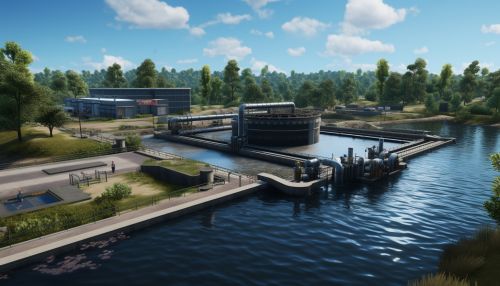Economic impact of water pollution
Introduction
Water pollution is a global issue that has significant economic implications. It refers to the contamination of water bodies such as lakes, rivers, oceans, and groundwater due to human activities. This contamination not only affects the health of living organisms but also impacts various sectors of the economy.


Economic Sectors Affected by Water Pollution
Several sectors of the economy are directly affected by water pollution. These include:
Agriculture
Agriculture is heavily reliant on water for irrigation. However, when the water used is polluted, it can lead to reduced crop yield and increased costs for farmers who need to invest in water treatment or alternative water sources.
Industry
Many industries, such as manufacturing, mining, and energy production, require large amounts of water. Water pollution can increase operational costs for these industries as they need to treat polluted water before use or dispose of it responsibly after use.
Tourism
Water pollution can negatively impact the tourism industry, particularly in areas where water bodies are a major attraction. Tourists are less likely to visit polluted beaches or engage in activities such as fishing or boating in polluted waters.
Cost of Water Pollution
The economic cost of water pollution can be substantial and is often underestimated. These costs can be direct, such as the cost of treating polluted water, or indirect, such as the loss of revenue from decreased tourism.
Direct Costs
Direct costs of water pollution include the cost of water treatment, the cost of health care for those affected by polluted water, and the cost of restoring polluted water bodies.
Indirect Costs
Indirect costs of water pollution can include lost revenue from tourism and recreation, decreased property values near polluted water bodies, and reduced agricultural productivity due to polluted irrigation water.
Economic Benefits of Water Pollution Control
While controlling water pollution requires investment, it can also result in significant economic benefits. These can include increased revenue from tourism, improved public health, and enhanced agricultural and industrial productivity.


Conclusion
Water pollution has significant economic impacts, affecting various sectors and imposing substantial costs. However, investment in water pollution control can yield considerable economic benefits. It is therefore crucial for policymakers to consider both the costs and benefits of water pollution and its control when making decisions about water management.
